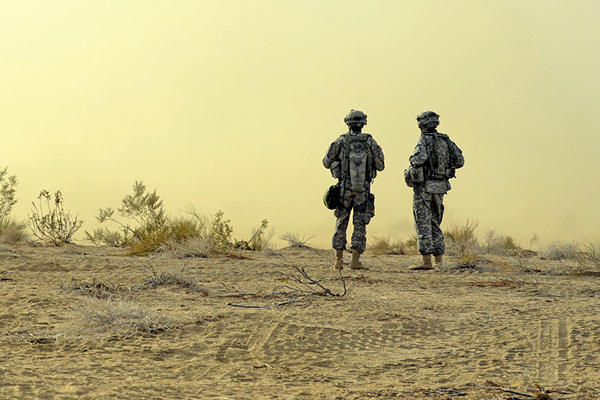The Army is looking to train a soldier who can look at an enemy's cruelties -- including those inflicted on his buddies -- and not necessarily resort to the same brutality, officials said Wednesday at the Association of the U.S. Army's annual conference in Washington D.C.
At the same time, the soldier must also be strong enough to say "no" even if the pressure to commit cruelties comes from command or political pressure, said Lt. Gen. Robert B. Brown, commander of the U.S. Army's Combined Arms Center. If not, those actions will be blast across the globe on Twitter, Facebook or other social media outlets.
"The strategic consequences of mistakes have grown as almost any public event can be broadcast around the world," Brown told a group during a presentation entitled the Human Dimension.
Today's soldiers need to be self-aware, socially, culturally and politically knowledgeable, who understand the complexities of the modern battlefield and the consequences of individual actions, Brown said in his opening remarks.
Conventional warfare can be dealt with by American firepower and equipment. U.S. enemies can't match or beat American forces in conventional combat and so look for other areas to exploit, including moral and ethical failures.
But when the threat is amorphous and ambiguous, such as those posed by the Islamic State in Iraq and Syria (ISIS), the utility of the material solution is less, Brown said. That means the actions taken by an individual soldier bears greater significance.
The adage about "doing the right thing when no one is looking" has not changed, he said, but "what's changed is doing the right thing when the entire world is watching."
"Even more so than ever in history, because you're facing in many cases individuals who have no ethics, who don't follow the Geneva Conventions ... [There is] even greater pressure on those soldiers as they are out there making these tough decisions, and knowing they're going to see terrible atrocities ... they cannot lower themselves to the level of that enemy," Brown said.
Brown said setting that kind of example is key to mission success, "no doubt about it."
During the Iraq War one of the most serious black eyes suffered by the U.S. military occurred with the abuses and torture of inmates at Abu Ghraib by American soldiers.
After his presentation, Brown told Military.com that it is also critical that soldiers remain ethical when the direction to violate the Geneva Conventions originates with higher U.S. political and military sources.
"If you have the ethical training as part of training for your unit, a trusted team of professionals, they help prevent that," he said. "You can never stop it completely. It's going to happen. I wish I could say it's never going to happen."
Bryant Jordan can be reached at bryant.jordan@military.com.




























